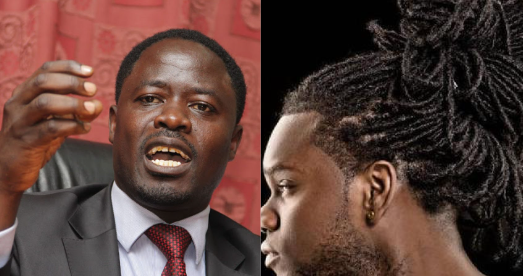MP Peter Kaluma under fire over claims professionals should not have dreadlocks

In a recent tweet, Homa Bay Town Member of Parliament Peter Kaluma suggested that professionals like lawyers, engineers, and doctors shouldn’t have locks, which generated a contentious discussion on social media.

The post went viral and was seen by over 6 million users on Twitter, but it also drew a lot of negative attention and criticism. The MP’s remark was met with outrage from many individuals, who accused him of bigotry and discrimination.
Many experts and professionals from all around the nation criticized the MP’s statement on social media, and some even shared their own professional images of themselves with locks to refute the MP’s claims.
They claimed to have achieved career success while sporting locks, and that one’s hairdo shouldn’t be considered as a measuring stick for success.
An executive from Microsoft Africa was among the many people who denounced Kaluma’s remarks.
On Twitter, he shared a picture of himself with the caption, which over 2 million people saw “I’m the person in the picture, and I work for Microsoft, the third-largest company in the world. They place more emphasis on what I bring to the table than on insignificant details like my hair.”
This should be enforced by all Universities and learning institutions.
We're training leaders in various fields, not prostitutes! pic.twitter.com/bVwkmPGQH2— Hon. George Peter Kaluma, CBS. MP. (@gpdkaluma) January 8, 2023
This incident brings to light the argument over hairstyles and business attire. While some contend that particular hairstyles, such locks, might be unprofessional and may cause discrimination, others hold the opinion that hair has no bearing on one’s capacity to perform their work.
Imagine your doctor, Lawyer, Engineer in dreadlocks 🏃🏃
— Hon. George Peter Kaluma, CBS. MP. (@gpdkaluma) January 8, 2023
After recently forbidding students from sporting locks among other haircuts, Kenya Methodist University has also made headlines.
The university asked all students to adhere to its dress code in a memo dated January 5, 2023.
Male students with dreadlocks, plated hair, earrings, or untucked shirts will not be admitted to the school, states the memo.
“The Dean of Students wishes to encourage all students to adopt a style of dressing and appearance that would be accepted in the various fields of work and society in general…Vests that show bare chest, hats or caps in classes are also not allowed,” reads part of the memo signed by Dr. Esther Mbaabu, the Dean of Students at the university.










